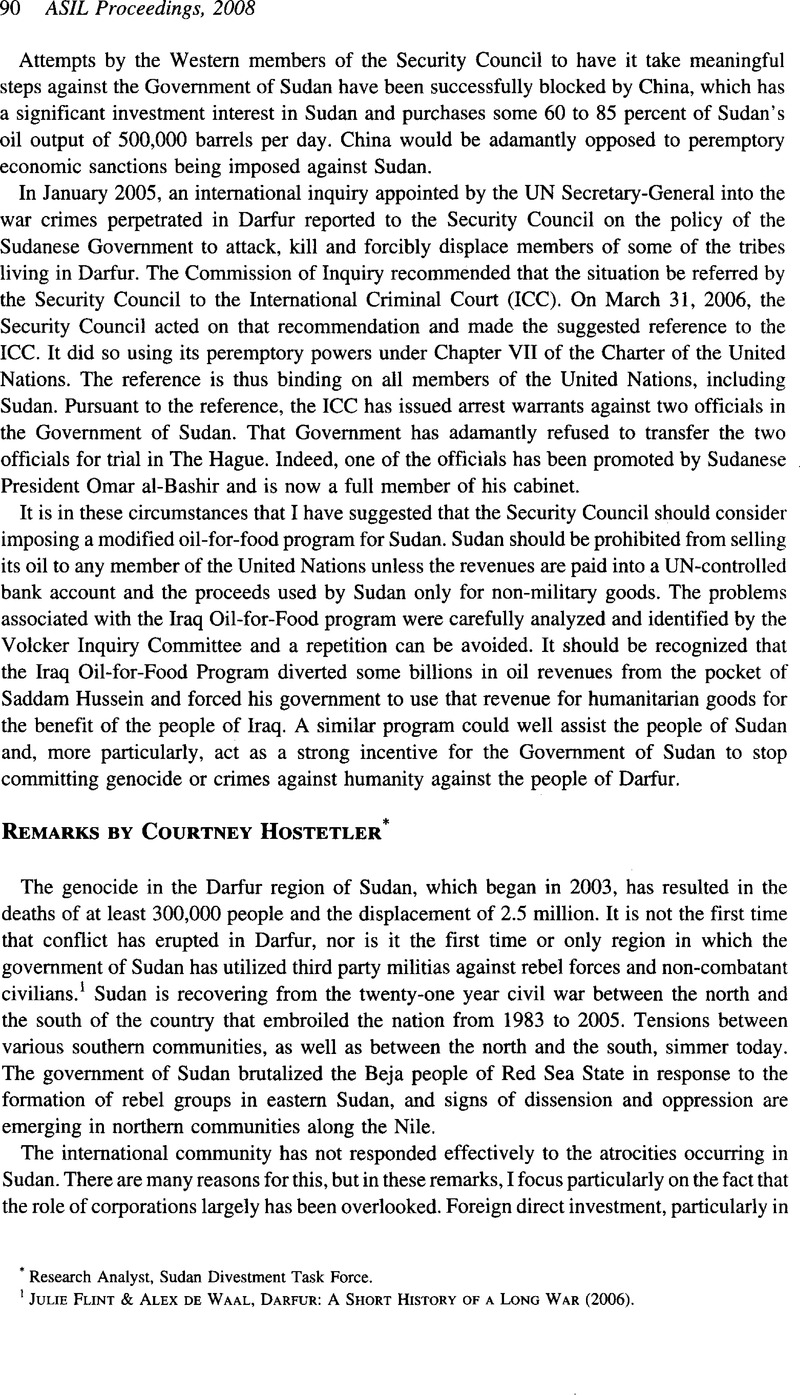No CrossRef data available.
Article contents
Remarks by Courtney Hostetler
Published online by Cambridge University Press: 28 February 2017
Abstract

- Type
- The Politics of Sudan
- Information
- Copyright
- Copyright © American Society of International Law 2008
References
1 Julie Flint & Alex De Waal, Darfur: A Short History of A Long War (2006).
2 Branch, Adam & Mampilly, Zachariah C., Winning the War, but Losing the Peace? The Dilemma of SPLM/A Civil Administration and the Tasks Ahead, 43 J. Mod. Afr. Stud. 1, 1-20 (2005)CrossRefGoogle Scholar.
3 Large, Daniel, China and the Changing Context of Development in Sudan, 50 Dev. 57-62, 58 (2007)CrossRefGoogle Scholar.
4 Downs, Erica, The Fact and Fiction of Sino-African Energy Relations, 3 China Sec. 42-68, 48 (2007)Google Scholar.
5 Government of Sudan Ministry of Finance, Table No. 9: Export by Commodities (2007), obtainable from http://www.cbos.gov.sd/english/econe.htm.
6 Jeffrey Gettleman, War in Sudan? Not Where the Oil Flows, N.Y. Times, Oct. 24, 2006.
7 Peter Goodman, China and Sudan: Partners in Oil—and Warfare?, The Wash. Post, Dec. 27, 2004.
8 Christian Aid Society (Uk), The Scorched Earth: Oil and War in Sudan (2001), obtainable from http://www.reliefweb.int/library/documents/2001/chr_aid-sudl4marl.pdf.
9 Supra note 4, at 45.
10 Id. Erica Downs challenges the notion that the policies of Chinese state-owned firms are dictated by the government. Evidence of China’s state policy in Sudan suggests that this can be taken a step further. Indeed, this traditional notion of state and state-owned firm relations has been inverted, with state policy now being influenced by corporations and their assets.




